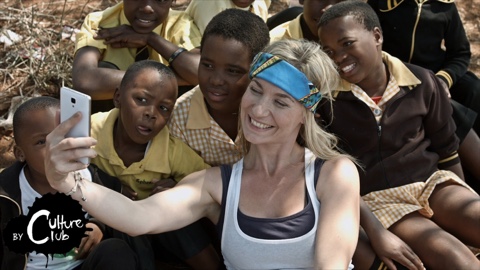Voluntourism: A Public Health Approach to International Volunteer Work
Do medical trips to developing countries actually bring substantial change to the lives of populations in the world’s poorest areas, or are they more significant in the lives of the privileged individuals who embark on these journeys with the goal of saving the world? While this may seem like a harsh attack on those who are simply trying to help, this is what is known as the growing voluntourism controversy.
The summer before my senior year of high school, I participated in an international medical service trip, where I got to work closely with doctors and patients as a Spanish-English translator. Our team of volunteers raised funds throughout the year for medical supplies and suitcases full of medications. Once there, we volunteered at a clinic and visited rural villages to provide free medical care. While I saw the good we were doing, I was also left wondering what would happen to the people we served upon our departure, once the six-month anti-parasite treatment ran out or they no longer had any access to free care. It seemed to me that things would go back to the way they had been, and I soon realized that this was a dire public health issue that needed to be addressed. Most of the recurring illnesses people suffered from were preventable, even through something as simple as health education. Due to the nature of these trips, I believe that volunteer trips can have both positive and negative impacts, and it is our duty to maximize the lasting impact of any volunteer work we might try to engage in.

Here at UC Berkeley, a campus teeming with change-minded faculty and students, we have the Blum Center for Development, which is very well known for offering one of the most popular minors on campus, Global Poverty and Practice. This minor allows students to tackle widespread global poverty, a main contributor to public health issues worldwide. The program consists of various prerequisite courses, “introducing students to the theoretical frameworks, methods, and practical skills necessary to engage with global poverty and inequality in effective ways,” leading up to an optional fieldwork experience. The practice experience component of the program allows students to take the methodologies they have learned and apply them by working with nongovernmental organizations and social movement organizations. Students meet with advisors to ensure that the project they choose is within their new skill sets and knowledge.
Taking on a minor might not be for everyone, so I wanted to find out what alternate options are available for others seeking to address global public health issues. Walking throughout the hectic Sproul Plaza during Calapalooza, our school’s club fair, I was handed countless fliers from various organizations urging me to participate in the next medical trip to a developing country. I researched them to find out what sort of work they are doing abroad and in our community, whether they were aware of the issues surrounding voluntourism, what they thought was effective about their volunteer work, and how they believed they could make improvements. I was pleasantly surprised to find out that a majority of them focused not only on the clinical aspect of the trip, but on making long term public health change.
GlobeMed, in particular, caught my attention. UC Berkeley’s chapter partners with a grassroots organization for several years — this long-term partnership will help create long term change. Then, throughout the year, students learn about the “culture, value, and needs” of the community they are helping, and they use this information to work with the organization to plan a project and establish a relationship with the community. The partner organizations implement the project into the community using 100% of the funds raised by the GlobalMed team, and then over the summer, students have the opportunity to go abroad to measure the impact and effectiveness of the trip. It seems like this is an excellent way to combine volunteer trips with long term impact.
Another organization our campus partners with is Global Medical Brigades, which organizes two brigades per year. It is important to note that between the two volunteer trips, an in-country team maintains relationships with the communities to conduct any necessary follow-up care and to train community health workers to facilitate a sustainable level of healthcare. Patient records are collected and trends in the health of the community are recorded so that a public health approach of addressing population and prevention can be implemented. The same organization also offers a specific Public Health Brigade that students can participate in prior to the medical trip. During this week-long experience, volunteers are paired up with a particular household and implement necessities that will prevent disease and create long-term change for the health of those families. Past installations have included water storage units, cement floors, and clean-burning stoves, which help maintain good hygiene, prevent the spread of infectious diseases and parasites, and reduce the risk of respiratory disease.
Going on volunteer trips is a very honorable thing to do, and while there are many reasons that people partake in them, I like to believe that the main reason is a genuine desire to help those in need. While it may seem like volunteering abroad is the only way to do so, we need to shift our perspectives and be ready to do whatever it takes to bring better public health change to the developing world.
